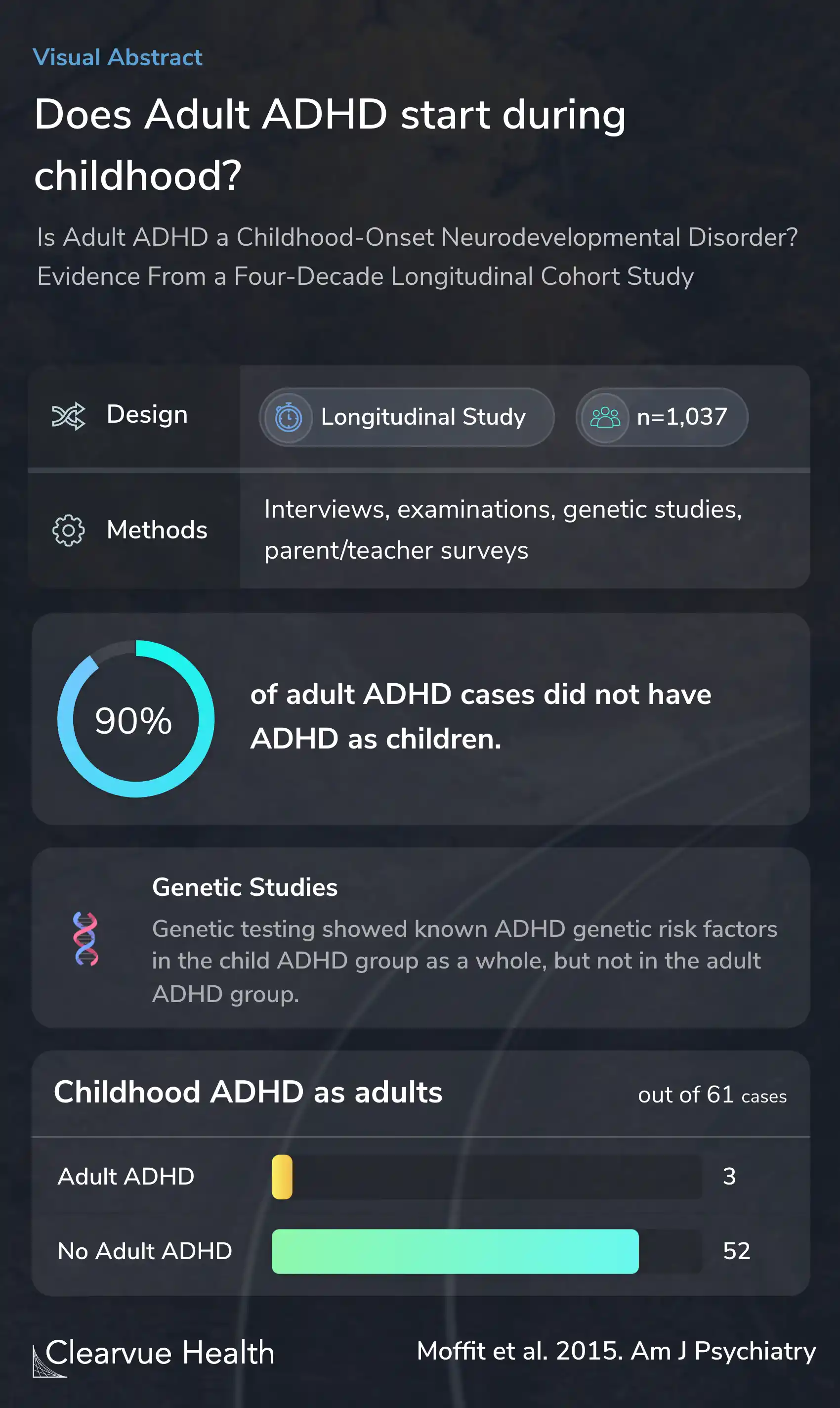Can you get ADHD as an adult?
February 24, 2023
The current definition of adult ADHD
ADHD, as it’s currently defined, is a disorder that starts in childhood. It is believed to be a developmental disorder that occurs while our brains mature.
As you can see in the diagnostic criteria below, the symptoms of ADHD should be present in a person before age 12 to qualify as ADHD.
Evidence of adult ADHD as a separate disorder
However, as with many psychiatric conditions, these criteria are not necessarily set in stone. When it comes to ADHD, there is an increasing amount of evidence supporting adult ADHD as a separate disorder.
Some studies have recently found many adults with ADHD symptoms who didn’t have them as children, challenging the traditional definition of ADHD.
For example, one study followed 5,349 children from birth to adulthood.
They found children and adults with ADHD symptoms. However, these groups had little overlap. Children with ADHD typically improved by the time they reached adulthood, while the adults with ADHD symptoms normally developed the symptoms later in life in this study.
Another smaller study found similar results: most adults with ADHD did not have it as children.

Because these findings are relatively recent, they haven’t yet been fully incorporated into how we understand and diagnose ADHD.
At the very least, they are an excellent reason to reconsider and further study how we define adult ADHD:
Can adult ADHD be a continuation of unrecognized childhood ADHD?
One potential explanation for the presence of adults with ADHD who didn’t appear to have it as children is the difficultyin recognizing and diagnosing ADHD.
Some children can manage and “mask” their ADHD with coping mechanisms or sheer willpower, making it challenging to recognize and diagnose their ADHD, particularly if their ADHD is mild.
However, when these children reach adulthood, more challenging courses in college may make these symptoms more apparent, thus leading to diagnoses of ADHD in adulthood.
Key Takeaways
Our understanding of ADHD continues to evolve as more studies come out.
While the official definition of ADHD still requires some symptoms in childhood, there is growing evidence that adults can get ADHD without any symptoms as children.
This remains a topic of debate and continued research. ADHD is a complex condition to diagnose and treat. As with any psychiatric condition, be sure to talk to your doctor if you are concerned that you may have ADHD.